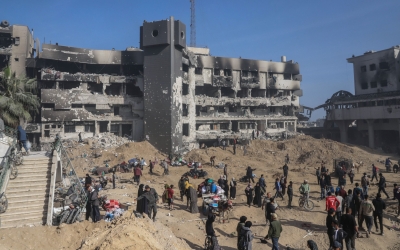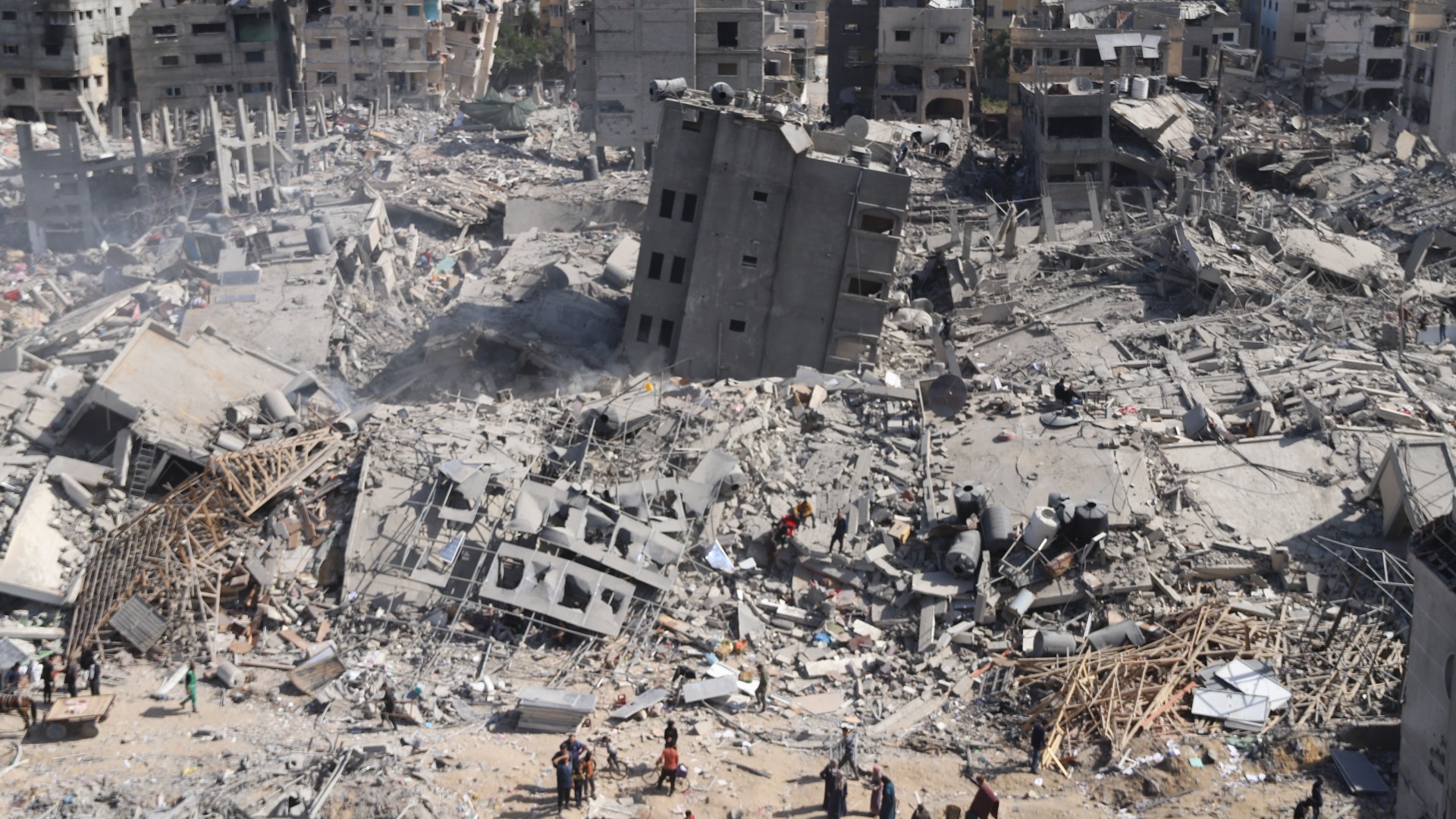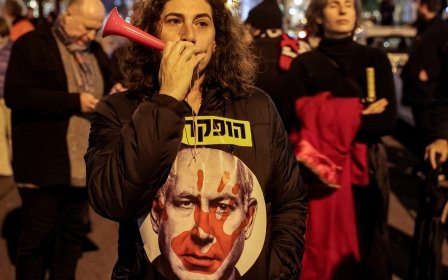War on Gaza: Palestinians dig through rubble with their bare hands to find loved ones

Hundreds of displaced Palestinians returned to their homes near al-Shifa hospital on Monday to find bodies strewn inside and outside the facility after Israeli forces withdrew from the area.
Earlier in the day, Israeli forces ended their 14-day siege of the hospital, leaving Gaza's largest medical complex in shambles and entire neighbourhoods in ruin.
The Israeli army claimed its devastating offensive was a success, and said, without providing any evidence, that its forces had killed more than 200 Palestinian fighters and arrested hundreds more.
But locals told Middle East Eye that the raid had decimated much of the sprawling al-Shifa hospital complex and nearby residential areas, with scores of civilians trapped amid the rubble of crumpled apartment blocks.
Stay informed with MEE's newsletters
Sign up to get the latest alerts, insights and analysis, starting with Turkey Unpacked
Hundreds of locals who converged on the area found a scene of devastation, with charred buildings, mounds of dirt that had been churned up by bulldozers, and wounded Palestinians on stretchers.
Local resident Ahmad Abdulwahid told MEE that he spent much of the morning with his friends searching through the ruins of the four-story tower block where his family once lived, in the hope of finding loved ones still alive.
Several members of Abdulwahid's family are still missing following Israel's devastating siege on the neighbourhood, including his sister and four of her young children.
Picking through the rubble and twisted metal of their home with his bare hands, he said the bodies of four Palestinians were recovered after a lengthy search.
Nearby, corpses, some covered in dirty blankets, lay scattered around the charred hulk of burnt-out buildings.
The ground was heavily ploughed up, and numerous buildings were either flattened, close to falling or burned down completely.
"I went to my sister's house with a friend but their home was completely destroyed," Abdulwahid told MEE. "We managed to recover four bodies out of 24.
"There is no civil defence or tools (excavators), so we had to use our hands and simple tools. The ones we managed to rescue were close to the surface."
Nauseating smell of death
Since Israel declared war on Gaza in mid-October, the country's military has laid waste to much of the enclave's north, badly damaging more than half of the buildings and large swaths of entire neighbourhoods.
During the past six months of war, Palestinian officials and medics have repeatedly accused the Israeli army of trying to destroy the territory's health sector, which has frequently been targeted by air strikes and shelling.
Al-Shifa, the largest hospital in Gaza, had already been under immense strain in the first stages of the war, with bodies piling up after food, fuel and anaesthetics ran out.
But it became a major focus of the Israeli ground offensive, with Israel claiming that Hamas was running a command centre below the facility despite repeated denials from hospital officials and the Palestinian group.
On 15 November, Israeli troops sparked international outcry by launching a night-time raid on the complex. Several people, including the hospital director, were arrested and interrogated.
Abdulwahid told MEE that following the Israeli army's withdrawal from the al-Shifa complex, a thick and nauseating smell of decomposing bodies lingered in the air and it was unlikely they would find more survivors.
"The smell on al-Wehda Street [which cuts through most of northern Gaza] from the beginning until [my family's] house smelled of death, with decaying bodies and bodies covered in flies," he said.
"All four floors of the building were completely demolished. We couldn't find anyone alive. We broke the walls to reach the room where we believed the family had gathered before the strike. The first thing we found was the hand of a small girl. We then retrieved a body, six days under the rubble."

Officials in Gaza have said they don’t have the equipment, manpower or fuel to search properly for the living, let alone the dead.
The ongoing war in Gaza began when a Hamas-led assault on southern Israel killed at least 1,140 people, with over 200 taken back to Gaza as hostages. Israel retaliated by relentlessly bombing the Palestinian enclave and launching a ground invasion, killing at least 32,000 Palestinians, mostly women and children, and destroying large swathes of the area's civilian infrastructure.
The UN and other humanitarian groups have been warning of an ever-nearing famine in northern Gaza.
In late March, 70 percent of the population was suffering from catastrophic levels of hunger, according to a UN-backed report.
Israeli officials have previously stated their intent to continue the war until they are able to decisively defeat Hamas, claiming that not even the International Court of Justice (ICJ) will stop them.
Israel is currently facing accusations of breaching the Genocide Convention at the ICJ, in response to a case filed by South Africa. In the interim, the court ordered Israel to take measures to prevent genocidal acts in Gaza and allow the delivery of humanitarian aid.
Last week, UN human rights expert Francesca Albanese submitted a report to the UN Security Council, stating that Israel has committed several acts of genocide in its war on Gaza and that it should be placed under an arms embargo.
This article is available in French on Middle East Eye French edition.
Middle East Eye delivers independent and unrivalled coverage and analysis of the Middle East, North Africa and beyond. To learn more about republishing this content and the associated fees, please fill out this form. More about MEE can be found here.






